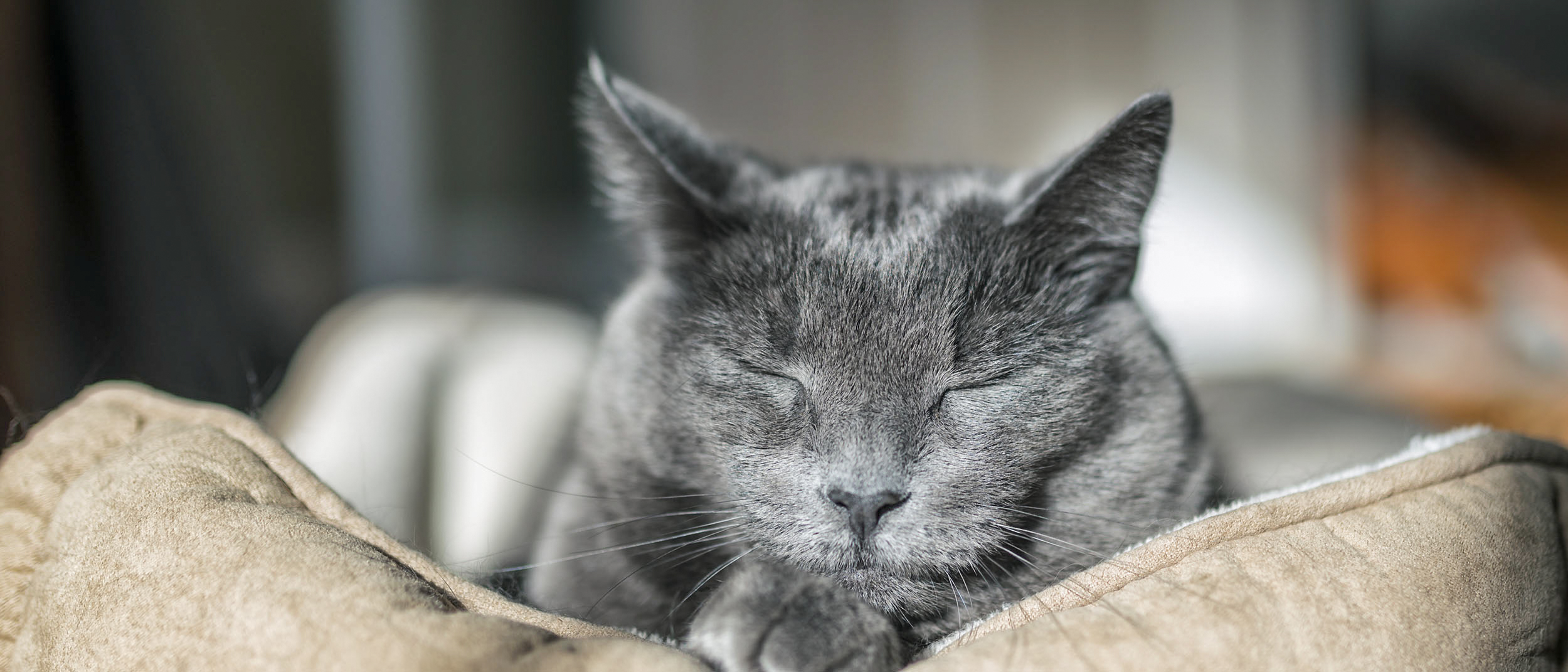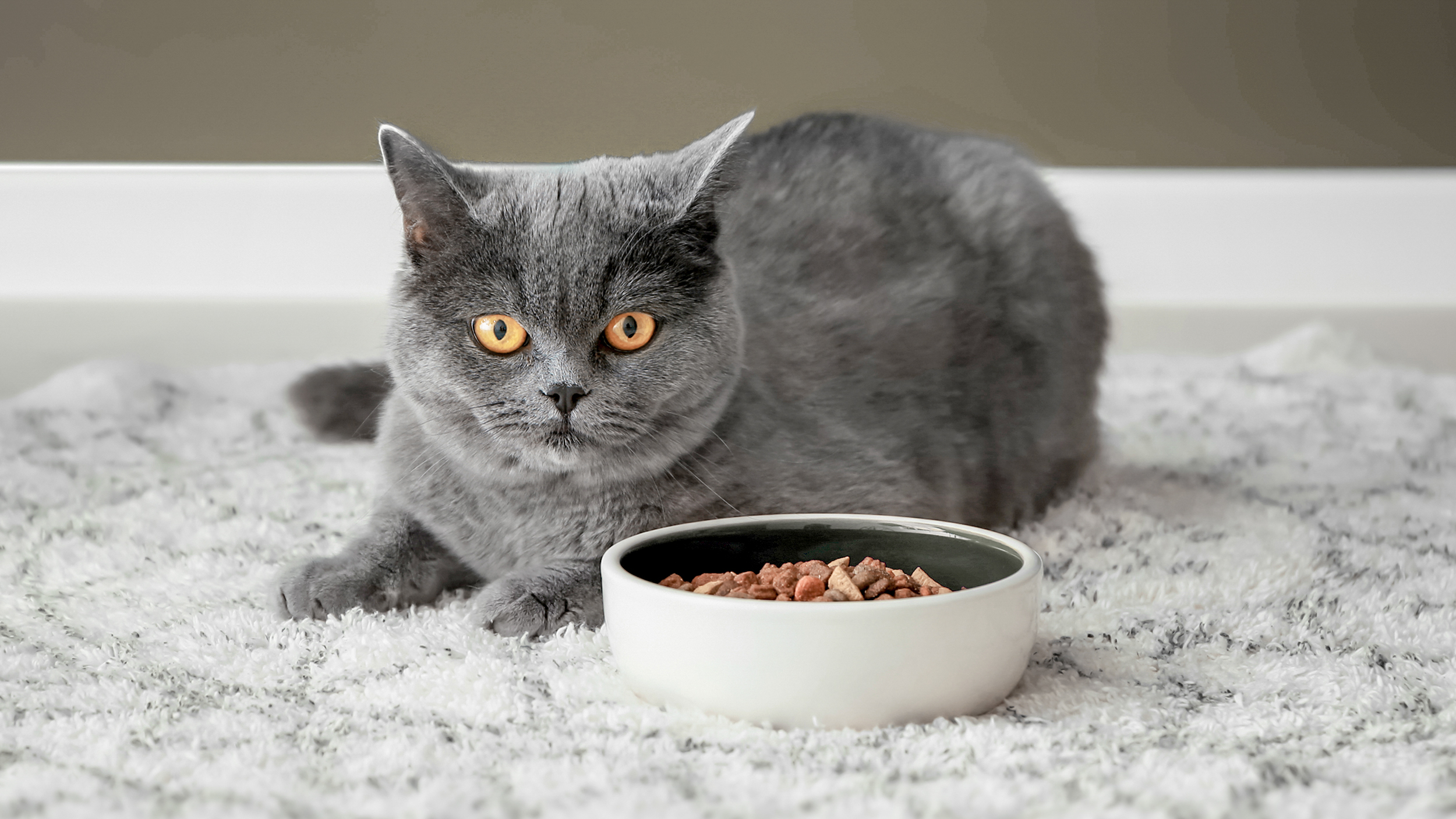Toxic foods for cats

Cats are sensitive to certain chemicals and compounds that can’t always detoxify properly in their body, potentially resulting in illness and even fatalities. Knowing which toxic foods and other substances you need to keep out of your cat's reach means you can better protect them from getting sick or distressed.
This is not an all-inclusive list, so make sure that you keep anything you’re unsure about away from your cat, and don’t feed them anything in addition to their regular diet unless you have discussed it with your veterinarian.
Toxic food for cats
A number of foods you’re likely to have in your house are toxic to cats, with signs ranging from sickness to severe organ damage. Some of the most toxic foods include:
- Chocolate: As with dogs, chocolate is toxic to cats due to the presence of theobromine. The darker the chocolate, the more theobromine is present. Depending on the amount and type of chocolate consumed, your cat can suffer with an abnormal heart rhythm, tremors, seizure and even death.
- Onions and garlic: Both of these common ingredients can cause problems in your cat’s body, as they can encourage red blood cells to break down and lead to anemia. They can also cause gastrointestinal upset, resulting in diarrhea.
- Grapes and raisins: We know that grapes and raisins are toxic to dogs, but can cats eat grapes? Both these fruits are toxic to cats, eventually causing kidney failure. Early warning signs to keep an eye out for in your cat are repeated vomiting and hyperactivity.
- Protein: Although protein is a crucial part of your cat’s diet, certain types of protein can be damaging to their health. Giving your cat raw eggs puts them at risk of food poisoning, but it can also interfere with their ability to absorb the B vitamin biotin due to the presence of a protein called avidin in the egg white. If your cat eats large quantities of liver, this can cause vitamin A and D toxicity, which can affect their bones.
- Fatty or fried foods: Just like with dogs, these foods can be too rich for your cat and can cause diarrhea.
- Alcohol and caffeine: The effects a human feels from these substances are more severe in cats due to their small size and can cause serious damage.
- Lactose: Although the image of a cat drinking a saucer of milk is common, after weaning, your cat’s lactose intolerance increases, and ingesting cow or goat's milk can lead to digestive upset and discomfort.
On top of these foods to avoid, you should avoid giving your cat table scraps or leftovers from your meal; not only does it encourage begging behavior, it can also contribute to weight gain.
If you believe your cat has eaten something toxic, speak to your veterinarian immediately who will be able to advise you on the best course of action - and make sure that you take preventative measures by keeping toxic substances, foods or plants away from your pet.

Signs your cat has eaten something toxic
It is important to educate yourself on the symptoms and signs your cat may show if they have accidentally eaten something toxic to them. The most common signs and symptoms include:
- Vomiting
- Diarrhea
- Difficulty breathing
- Loss of appetite
- Lethargy
- Seizures
If you notice one or more of these symptoms it is important to act swiftly and contact your veterinarian for further advice and help.
How to prevent your cat from eating toxic foods
Once your cat has been checked by a veterinarian. It is important to follow their instructions so that your cat can makes a full recovery and ensuring the incident doesn’t happen again.
When taking care of your cat, keep monitoring them to check for any delayed symptoms as well as keeping them in a quiet space so they are comfortable and away from anything that can cause further stress (other pets, etc).
Also, for future safety keep any harmful food safely secure and in a location that your cat can not access.
Other household things that can be toxic to your cat if ingested
Other items to be wary of your cat getting access to and consuming are medicines/chemicals, as well as plants. These can both be toxic for your cat, here’s how:
Medicines/ Chemicals:
Your cat will react badly to specific compounds present in household products, including:
- Acetaminophen
- Aspirin
- Iburprofen
- Phenolic disinfectants (used to clean restrooms)
- Solvents
- Permethrin (insecticides)
- Ehylene Glycol (Antifreeze)
Plants:
Many times, your cat will avoid eating anything that could cause it to become ill; cats are very sensitive to bitter flavors, and most substances that are toxic to them taste bitter. However, lily and other plant toxicities are seen commonly in cats.
It’s a good idea to avoid growing certain plants in your yard or having them in your home that are toxic to cats, just in case. These include:
- Mistletoe
- Holly
- Ivy
- Poinsettia
- Cyclamen
- Wisteria
- Rhododendron
- Sweet Peas
- Love Apples
- Lilies
Make sure that items in your house are kept in a safe location and out of reach of your cat to prevent them from accessing and consuming something that could be toxic to them.
Find a vet
If you have any concerns about your cat’s health, consult a vet for professional advice.
Like & share this page